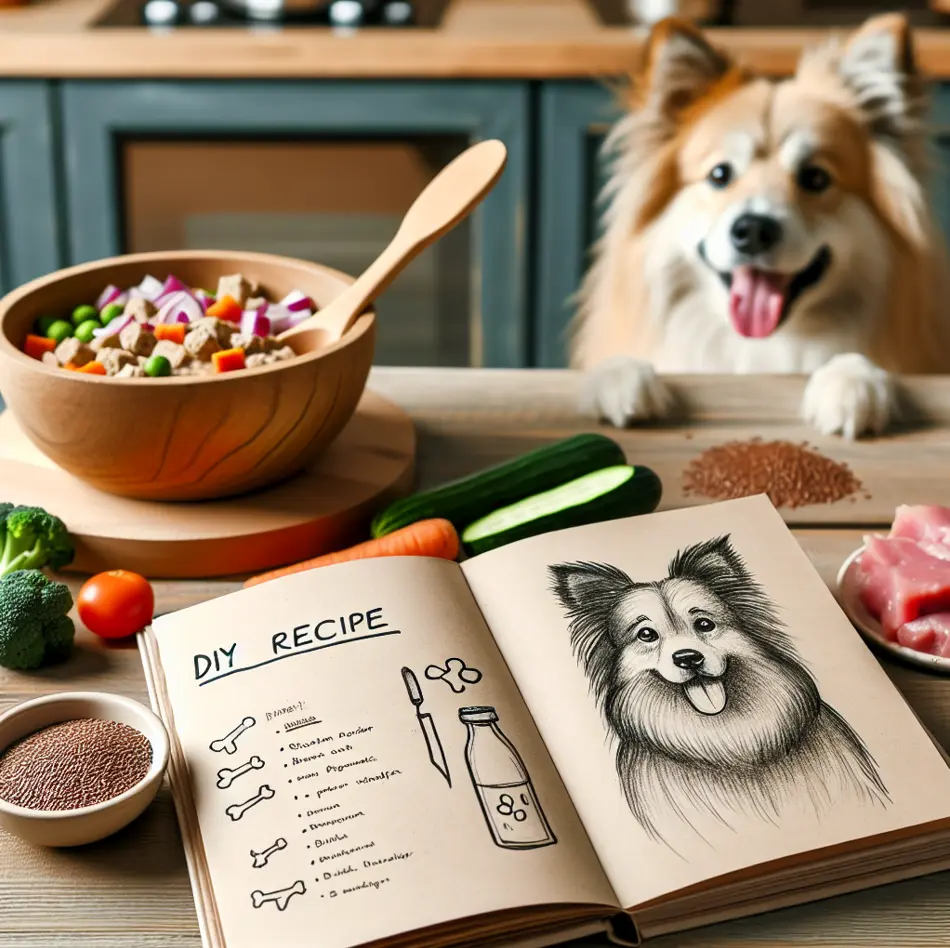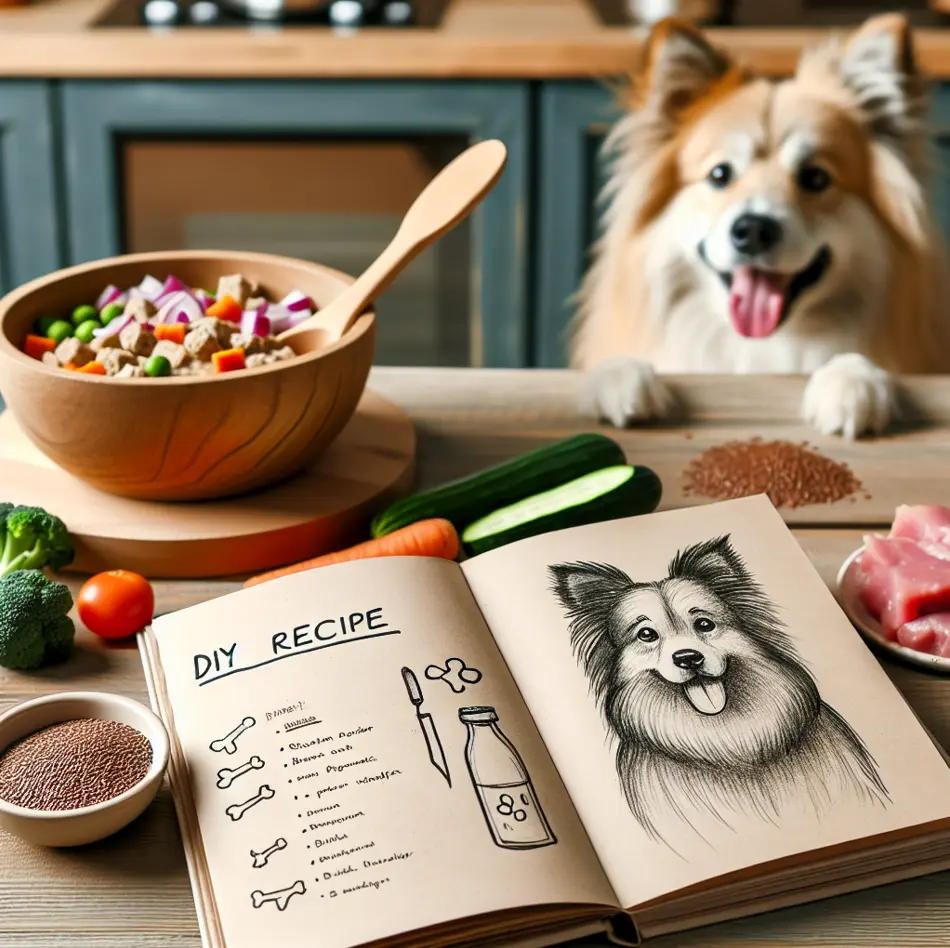Hello, fellow dog lovers! If you’re anything like me, you want the very best for your canine companion. One way to ensure your dog gets a nutritious and balanced diet is by whipping up homemade meals right in your kitchen. Today, I’m excited to share a detailed guide on creating a DIY dog food recipe that is not only healthy but also delicious for your furry friend. Let’s get started!
Why Make Homemade Dog Food?
You might be wondering why you should bother making dog food from scratch. Here are some compelling reasons:
- Control Over Ingredients: You know exactly what goes into your dog’s meal.
- Tailored Nutrition: Tailor the recipe to suit your dog’s unique dietary requirements.
- No Fillers or Preservatives: Avoid unnecessary additives found in commercial dog foods.
- Bonding Experience: Cooking for your pet can strengthen the bond between you.
Understanding Your Dog’s Nutritional Needs
Before we jump into the recipe, it’s crucial to understand the nutritional needs of dogs. A balanced diet should include the following:
- High-Quality Protein: Essential for muscle growth and repair. This can come from meat, seafood, dairy, or eggs.
- Fat: Provides energy and supports cell function. Sourced from meat or oils.
- Carbohydrates: Offer a quick source of energy. Grains and vegetables are ideal.
- Calcium: Necessary for strong bones. Found in dairy products.
- Essential Fatty Acids: Important for healthy skin and coat. Egg yolks and oatmeal are excellent sources.
DIY Dog Food Recipe
Here’s a step-by-step guide to making a nutritious DIY dog food recipe that includes all the essential nutrients.
Ingredients
- 2 cups of high-quality protein (chicken, beef, or fish)
- 1 cup of grains (brown rice or quinoa)
- 1 cup of mixed vegetables (carrots, peas, or spinach)
- 1 tablespoon of olive or coconut oil
- 1/4 cup of dairy (yogurt or cottage cheese)
- 2 egg yolks
- 1 calcium supplement (crushed eggshell or bone meal)
Instruction
1. Prepare the Protein
Start by cooking your chosen protein. If you’re using chicken or beef, make sure it’s cooked thoroughly. For fish, ensure it’s deboned and cooked.
2. Cook the Grains
In a separate pot, cook the grains according to package instructions. Brown rice or quinoa are great choices as they are easy to digest.
3. Steam the Vegetables
Steam a variety of vegetables until they’re soft. Carrots, peas, and spinach are not only nutritious but also dog-friendly.
4. Combine Ingredients
Once everything is cooked, mix the protein, grains, and vegetables in a large bowl.
5. Add the Fats and Dairy
Stir in olive oil or coconut oil, along with the yogurt or cottage cheese. These will provide essential fats and calcium.
6. Include the Egg Yolks
Mix in the egg yolks for added nutrition. They’re a great source of essential fatty acids.
7. Supplement with Calcium
Finally, add the crushed eggshell or bone meal as a calcium supplement.
8. Mix Thoroughly
Ensure all ingredients are well combined. Make sure the food cools down before serving it to your dog.
9. Store Properly
Portion out the food into daily servings and store them in the refrigerator for up to three days. For longer storage, freeze individual portions.

Tips for Success
Consult Your Vet
Before making any significant changes to your dog’s diet, it’s wise to consult with your veterinarian. They can offer insights specific to your dog’s health needs.
Monitor Your Dog’s Health
Keep an eye on your dog’s weight, energy levels, and overall health after switching to homemade food. Any changes, good or bad, should be discussed with your vet.
Variety is Key
While this recipe is a great starting point, feel free to swap out ingredients to keep your dog’s diet varied and interesting.
Conclusion
Creating homemade meals for your dog can be rewarding for both you and your furry friend. With a bit of effort and love, you can provide a nutritious and delicious diet tailored to your dog’s needs. Ready to give it a try? Share your experiences in the comments below, and if you have any custom recipes, don’t hesitate to share!
Happy cooking, and here’s to happy, healthy pups!
For more recipes and tips, be sure to visit Dog Foods Recipe. Let’s continue this delicious and nutritious adventure together!
Frequently Asked Questions
1. What ingredients are needed for a nutritious DIY dog food recipe?
Common ingredients include lean meats (chicken, turkey, beef), vegetables (carrots, peas, sweet potatoes), and whole grains (brown rice, quinoa).
2. Can I make homemade dog food for my dog every day?
Yes, as long as the recipe is balanced and meets your dog’s nutritional needs. Consult with your vet to ensure it’s right for your dog.
3. How do I ensure my DIY dog food is nutritionally balanced?
Include a variety of protein, vegetables, and carbohydrates, and consider adding supplements like omega-3s, calcium, and vitamins as needed.
4. Is it safe to give my dog raw meat in a DIY dog food recipe?
It’s generally safer to cook the meat thoroughly to avoid the risk of bacterial infections. Always consult your vet if you’re considering raw feeding.
5. Can I use leftovers in my DIY dog food recipe?
Leftovers can be used if they are dog-safe, but avoid ingredients like onions, garlic, or fatty foods. Check with your vet for specific guidelines.
6. How much homemade food should I feed my dog?
The portion size depends on your dog’s size, age, and activity level. A general guideline is 2-3% of your dog’s body weight per day, split into meals.
7. Should I consult a vet before switching to homemade dog food?
Yes, it’s a good idea to consult with your vet before transitioning to homemade dog food to ensure your pet’s specific health needs are met.
8. Can I feed a puppy homemade dog food?
Yes, but puppies have different nutritional needs than adult dogs. Make sure the recipe is suitable for their growth and development, and check with your vet.
9. Is homemade dog food cost-effective?
While initial costs may seem high due to ingredient quality, homemade dog food can be economical in the long run, especially considering potential health benefits.
10. What should I do if my dog doesn’t like the food?
If your dog doesn’t enjoy the recipe, try altering the protein or adding dog-safe herbs like parsley for flavor enhancement. Always ensure dietary changes are monitored for health impacts

